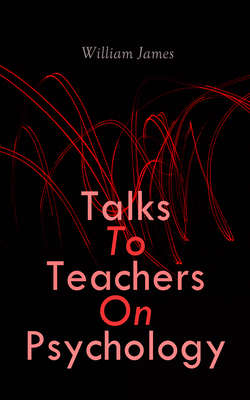Читать книгу Talks To Teachers On Psychology - William James - Страница 11
На сайте Литреса книга снята с продажи.
ОглавлениеFigure 1 shows the paths of the four successive reflexes executed by the lower or instinctive centres. The dotted lines that lead from them to the higher centres and connect the latter together, represent the processes of memory and association which the reactions impress upon the higher centres as they take place.
In Figure 2 we have the final result. The impression see awakens the chain of memories, and the only reactions that take place are the beg and smile. The thought of the slap, connected with the activity of Centre 2, inhibits the snatch, and makes it abortive, so it is represented only by a dotted line of discharge not reaching the terminus. Ditto of the cry reaction. These are, as it were, short-circuited by the current sweeping through the higher centres from see to smile. Beg and smile, thus substituted for the original reaction snatch, become at last the immediate responses when the child sees a snatchable object in some one's hands.
The first thing, then, for the teacher to understand is the native reactive tendencies—the impulses and instincts of childhood—so as to be able to substitute one for another, and turn them on to artificial objects.
It is often said that man is distinguished from the lower animals by having a much smaller assortment of native instincts and impulses than they, but this is a great mistake. Man, of course, has not the marvellous egg-laying instincts which some articulates have; but, if we compare him with the mammalia, we are forced to confess that he is appealed to by a much larger array of objects than any other mammal, that his reactions on these objects are characteristic and determinate in a very high degree. The monkeys, and especially the anthropoids, are the only beings that approach him in their analytic curiosity and width of imitativeness. His instinctive impulses, it is true, get overlaid by the secondary reactions due to his superior reasoning power; but thus man loses the simply instinctive demeanor. But the life of instinct is only disguised in him, not lost; and when the higher brain-functions are in abeyance, as happens in imbecility or dementia, his instincts sometimes show their presence in truly brutish ways.
I will therefore say a few words about those instinctive tendencies which are the most important from the teacher's point of view.
